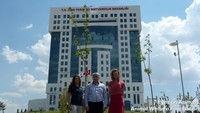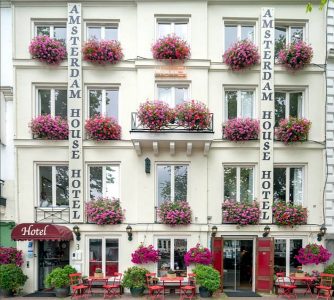
Today, the Eyes on Animals and Animal Welfare Foundation team held a meeting with Dr. Bayram Sertkaya, Head of Animal and Animal Products Border Inspection Department and Dr. Cüneyt Cem Gürkan, veterinarian in charge of animal-import at the border, to discuss the current situation at the border.
They admit to us that
The veterinarians at the border now also work until 22:00 instead of 17:00 as in the past. After 22:00 they are now on-call during the night too, should an animal truck arrive and need processing. These are promising improvements!
We remind them that they still need to organize more water hoses inside the border, as we had suggested last year. They inform us that the man from yesterday lied to us; there is indeed enough water pressure inside the border, but because this parking area was never meant to be for livestock trucks (it is close to the Duty Free shops and restaurants, thus not pleasant for the human travellers) they are purposely not cooperating in making things there easier for the animal trucks. The border workers don’t want the livestock trucks there. Dr. Bayram Sertkaya and Dr. Gürkan promise us that they will speak to customs and the chief of the border about getting more hoses in place.
They insist that
We understand their points and reassured them that we are putting pressure on the EU exporters as well. It is indeed unfortunate that the UECBV (Union of EU meat and live animal traders) did not come to this meeting. We had invited them and they were planning on joining us, but could not make it last minute. The EU exporters and Turkish importers started this risky long-distance trade in live animals, and they are both profiting from it. It was up to them to first organize and coordinate the details properly before starting this trade. It is now the second year that we are reporting on serious animal suffering. Although small improvements have been made, it is not yet enough. It is indeed time that they clean up their business mistakes and start communicating better with each other.

